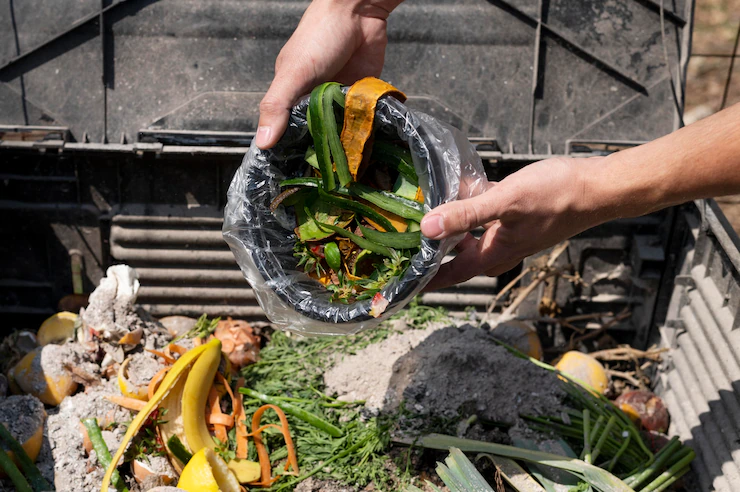Implementing effective waste management practices on a farm is crucial for environmental sustainability and efficient operations. Here are some steps you can take to implement effective waste management practices on your farm:
- Conduct a waste audit: Start by assessing the types and amounts of waste generated on your farm. This includes organic waste, such as crop residues and manure, as well as non-organic waste like plastic containers, chemicals, and packaging materials. A waste audit will help you understand the volume and composition of waste, which will guide your waste management strategies.
- Reduce waste at the source: Identify areas where waste can be minimized or prevented altogether. For example, you can implement precision farming techniques to optimize fertilizer and pesticide use, reducing chemical waste. Additionally, encourage the use of reusable or recyclable packaging materials and containers for farm produce to reduce plastic waste.
- Composting: Establish a composting system for organic waste. Composting allows you to turn crop residues, animal manure, and other organic materials into nutrient-rich compost that can be used as a natural fertilizer. Ensure proper segregation and management of compost piles, maintaining the right balance of carbon and nitrogen materials for efficient decomposition.
- Recycling and waste separation: Set up a system for segregating waste at the source. Create designated areas or containers for different types of waste, such as plastic, glass, metal, and paper. Promote a culture of recycling among farm workers and visitors, and establish partnerships with local recycling facilities or organizations to ensure proper disposal and recycling of different materials.
- Hazardous waste management: Manage hazardous waste, such as used pesticides, chemicals, and contaminated packaging, with utmost care. Store them securely in designated areas, ensuring proper labeling and separation from other waste streams. Follow local regulations and guidelines for the safe disposal of hazardous materials.
- Water management: Implement water conservation practices to minimize water waste on the farm. Use efficient irrigation systems, such as drip irrigation or precision sprinklers, to deliver water directly to plant roots, reducing evaporation. Collect rainwater and utilize it for irrigation purposes. Properly manage wastewater from animal facilities and ensure it doesn’t contaminate water sources.
- Education and training: Provide training and education to farm workers about the importance of waste management practices and their roles in implementing them. Raise awareness about the environmental and economic benefits of waste reduction, recycling, and responsible disposal. Encourage employees to share ideas and suggestions for improving waste management practices.
- Monitoring and continuous improvement: Regularly monitor and evaluate your waste management practices to identify areas for improvement. Keep track of waste generation, recycling rates, and any changes in waste composition. Use this information to modify and optimize your waste management strategies over time.
- Collaboration and partnerships: Engage with local community organizations, agricultural institutions, and government agencies that promote sustainable farming practices. Participate in programs or initiatives that support responsible waste management on farms. Collaborate with neighboring farms to collectively address waste management challenges and share best practices.
Remember, implementing effective waste management practices is an ongoing process that requires commitment and continuous improvement. By adopting these practices, you can minimize the environmental impact of your farm while improving efficiency and sustainability.
Join 'Farmers Mag' WhatsApp Channel
Get the latest Farming news and tips delivered straight to your WhatsApp
CLICK HERE TO JOIN






